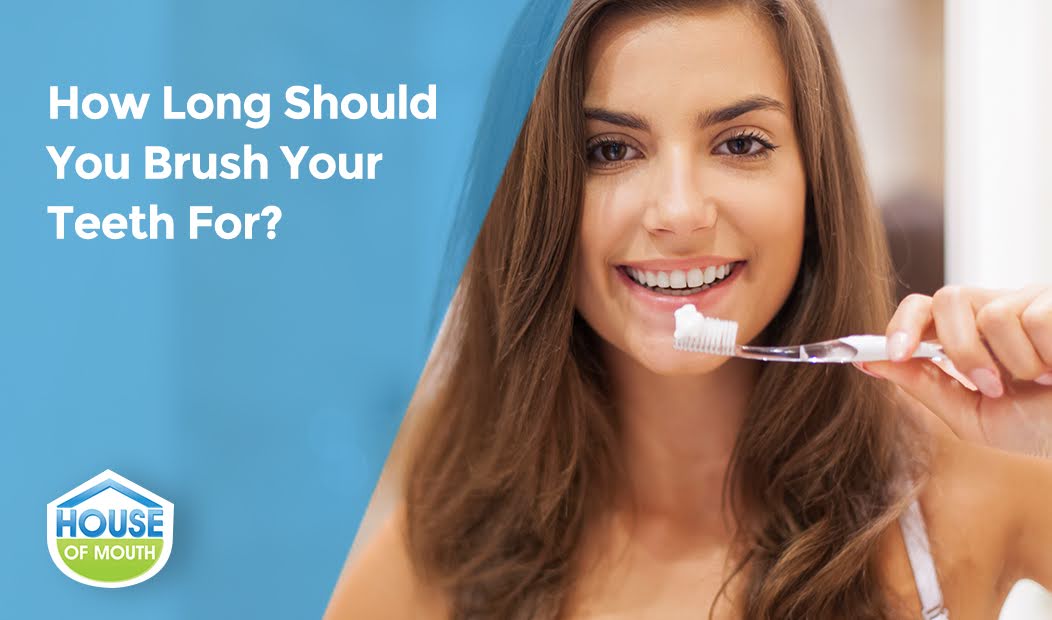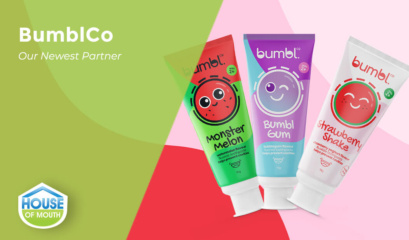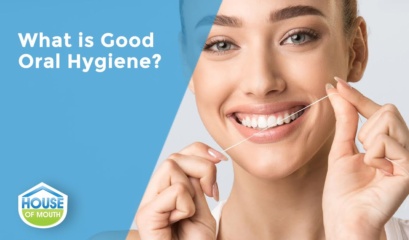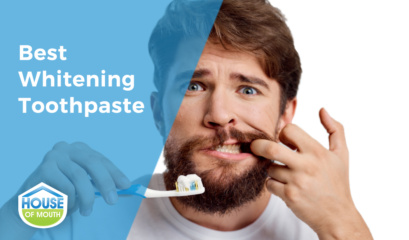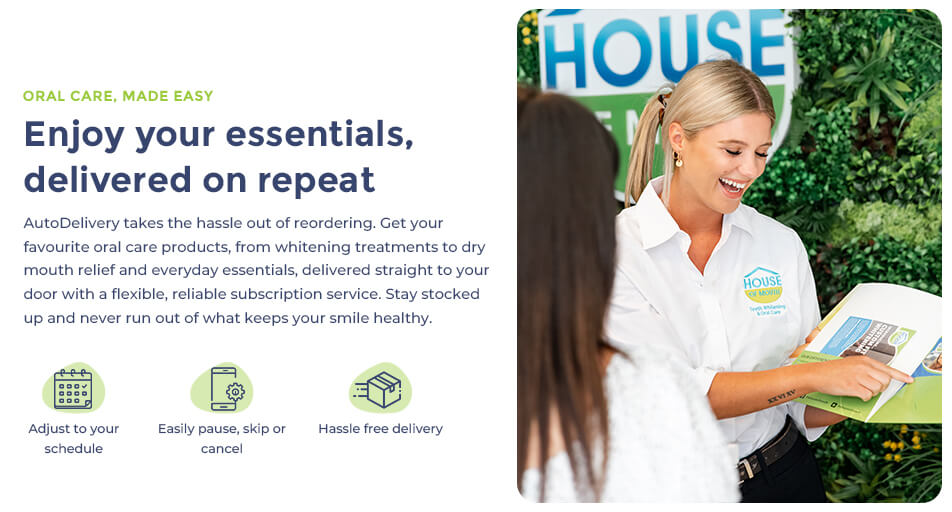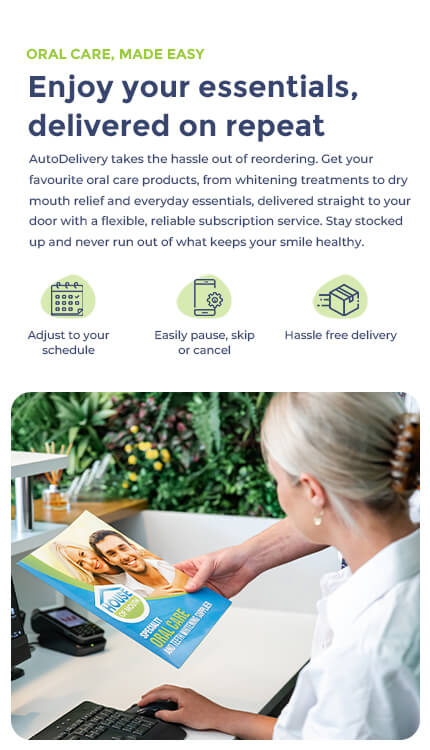We all know how important brushing our teeth is, and we’ve all been told roughly how long you should brush your teeth for. How long do you aim for? Two minutes? Three? Well, dental professionals universally agree on one key guideline: brush your teeth for at least two minutes, twice a day, as this is proven to reduce the prevalence of gum disease. This recommended time frame isn’t arbitrary; it’s backed by extensive research and scientific reasoning.
Now, if you’re wondering how long you should brush your teeth for, chances are you already care about your oral health and understand the importance of regular brushing. Let’s look at this topic in a little more detail.
The Science Behind the Two-Minute Rule
Two minutes is considered an optimal time to ensure that you’re adequately cleaning all areas of your mouth. This time frame allows you enough time to reach the front and back surfaces of your teeth, your gum line, and even the often-neglected back molars. In one study, researchers found that brushing for just one minute only removed 27% of plaque, while brushing for two minutes increased this number to 42%. Other factors that contribute to effective plaque removal are toothbrush head type, as well as brushing technique.
Tips for Timing Your Brushing Effectively
Two minutes isn’t a long time, but even so some may rush the process. Here are some ways that can help ensure you are brushing for two full minutes.
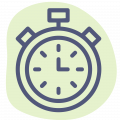
1. Use a timer
Embrace the tech at your fingertips. A simple yet effective way is to use the timer on your phone. Or, for a more integrated approach, consider an electric toothbrush equipped with a built-in timer.
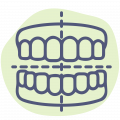
2. Divide your mouth into quadrants
Try dividing your mouth into quadrants: top left, top right, bottom left, and bottom right. Spend 30 seconds in each quadrant. This methodical approach not only guarantees comprehensive cleaning but also helps in maintaining a consistent routine. Also make sure to scrub every surface of your teeth, and reach all the way to the back too!

3. Make it fun
Who says oral care can’t be enjoyable? Especially for kids (and let’s admit, adults too), transforming brushing time into a fun activity can be a game-changer. Sync your brushing with a two-minute song or a short story. It’s about creating a joyful ritual around what’s essential for oral health.
Effective Brushing Technique
Spending two minutes brushing your teeth is important, but how you use that time makes all the difference. Proper technique ensures that every second counts and contributes to your oral health.
Start by holding your toothbrush at a 45-degree angle to your gums. This specific angle allows the bristles to effectively target and remove plaque accumulation along the gum line. When brushing, use short, gentle strokes in a circular motion rather than a back-and-forth sawing action. This method is not only more effective in cleaning but is also less abrasive on your enamel and gums, preserving their health. Using a soft-headed toothbrush also encourages healthier gums.
Pay special attention to the hard-to-reach areas of your mouth, particularly the inner surfaces of your teeth which are often neglected, as well as the chewing surfaces. And let’s not forget about your tongue: the tongue is a haven for bacteria that can contribute to bad breath and other oral health issues. Gently brushing your tongue or using a tongue scraper can significantly enhance your oral hygiene, rounding out a comprehensive brushing routine.
Common Brushing Mistakes to Avoid
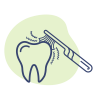
Overbrushing
It’s a common misconception that more pressure means cleaner teeth. In reality, brushing too hard or using a hard-bristled toothbrush can be a double-edged sword, harming enamel and irritating gums.
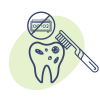
Rushing
Not brushing for the full two minutes can leave plaque and bacteria behind.
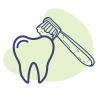
Using old toothbrushes
The importance of using a well-maintained toothbrush cannot be overstated. An old, worn-out toothbrush with frayed bristles is far less effective. It’s advisable to replace your toothbrush every three to four months to ensure that it’s doing its job effectively.
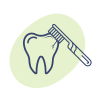
Using hard toothbrush heads
Perhaps surprising, but hard or even medium-hard toothbrush heads can harm enamel and gums. Opt for soft bristles instead, which are effective yet gentle, ensuring thorough cleaning without causing gum damage.
How Often Should You Brush Your Teeth?
Equally important to how long you should brush your teeth is the frequency of brushing. It’s universally recommended to brush your teeth twice a day – once in the morning and once before bed.
The morning brush cleans away the bacteria and plaque that build up overnight and freshens your breath for the start of your day. The nighttime brushing removes the day’s accumulation of plaque, bacteria, and food particles. It’s particularly important because saliva production, which naturally cleanses the mouth, decreases during sleep.
Many dentists even recommend brushing after every meal, but you’ll want to wait at least half an hour after eating before you brush. Brushing too soon after eating acidic food can wear away the enamel on your teeth. And of course, brushing after every meal isn’t realistic for people with demanding jobs!
Stay In Good Oral Health With The House of Mouth
Maintaining a consistent and effective oral hygiene routine is essential for oral health, and it starts with understanding the basics: how long and how often to brush your teeth. By brushing for at least two minutes twice a day using the correct technique, and complementing this with flossing, mouthwash, and regular dental scales and cleans, you can significantly improve your oral health. Remember, each aspect of oral care, from the tools you use to the time you spend on it, plays a vital role in keeping your smile bright and healthy.
At The House of Mouth, we’re dedicated to helping you achieve the best in oral health. Whether you’re looking for oral care products tailored to specific dental needs or seeking advice on improving your routine, we’re here to support your journey to a healthier, happier smile.


